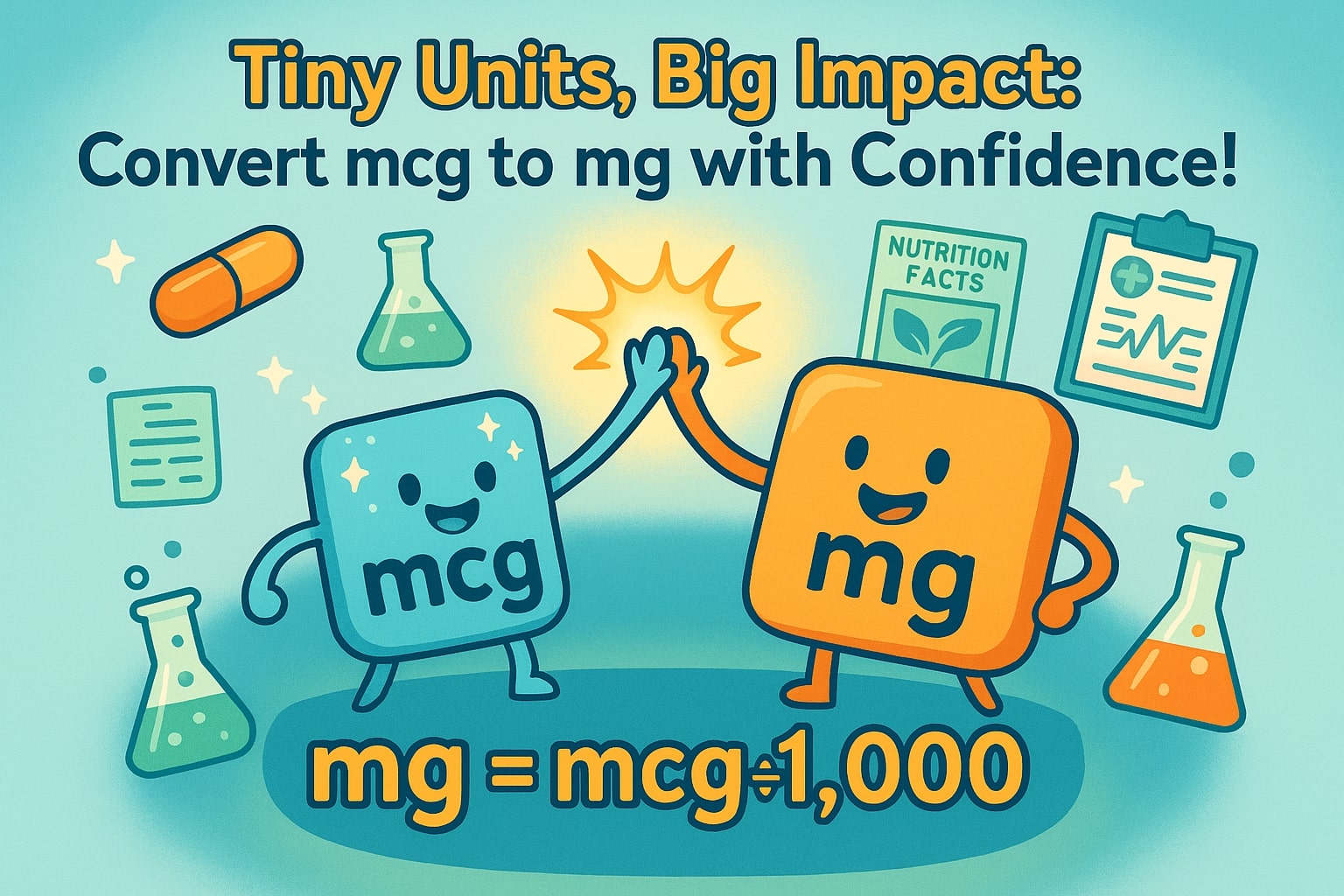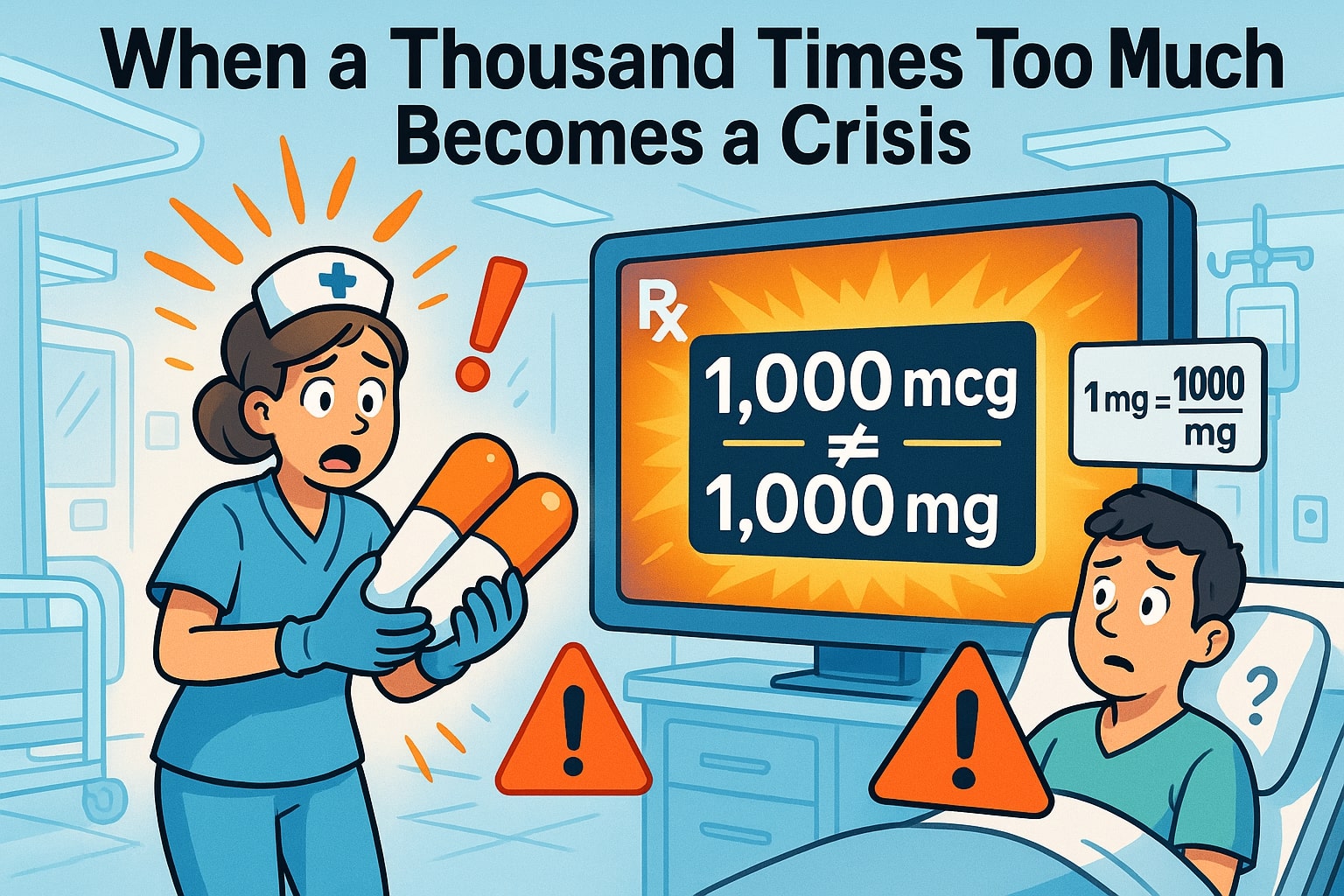Now that you know how to convert mcg to mg, you can apply this knowledge in medicine, nutrition, and science. For more versatile unit switches—across weights, lengths, volumes, and beyond—check out our comprehensive Conversion tool and make every calculation effortless!
Convert Micrograms to Milligrams
Need to convert mcg to mg? Whether you're dealing with medication dosages, nutritional values, or scientific measurements, understanding the relationship between micrograms (mcg) and milligrams (mg) is essential. Since these units are commonly used in health and science fields, precise conversions ensure safety and accuracy. For instant, reliable results, try our intuitive Weight Converter and get your answer in a click!

Understanding Micrograms and Milligrams
The microgram (mcg) is an extremely small unit of mass, equal to one-millionth of a gram. It is often used to measure vitamins, minerals, and pharmaceuticals where tiny amounts make a big difference.
The milligram (mg) is larger, equal to one-thousandth of a gram. It is a more commonly used unit for drug dosages, chemical substances, and nutritional values.
Formula to Convert mcg to mg
To convert micrograms to milligrams, use this simple formula:
Milligrams (mg) = Micrograms (mcg) ÷ 1,000
Example: To convert 5,000 mcg to mg, divide:
5,000 ÷ 1,000 = 5 mg
Did You Know?
-
A single strand of human hair weighs about 500 mcg.
-
The recommended daily intake of Vitamin B12 for adults is 2.4 mcg.
-
Some powerful medications, like fentanyl, are prescribed in doses as small as 25 mcg due to their potency.
-
A typical grain of pollen weighs around 15 mcg.
-
The smallest bacteria can weigh as little as 0.1 mcg!
The Case of the Miscalculated Dosage
In 2006, a hospital in the U.S. made a critical dosage error when a patient was prescribed 1,000 mcg of medication but mistakenly received 1,000 mg instead—a thousand times the correct dose! This error resulted in severe complications, highlighting the importance of proper unit conversions in the medical field.
This real-life incident underscores why converting mcg to mg accurately is crucial, especially in healthcare, where even the smallest mistake can have life-threatening consequences.


